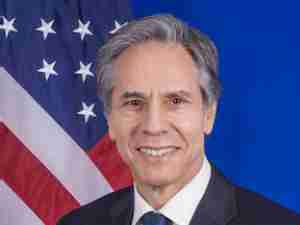Trade rows brew as China helps home team tackle slowdown
By: Reuters | Dec 14 2015 at 03:30 PM | International Trade
China is sowing the seeds of a global trade war as its smelters, refiners and manufacturers increasingly export goods they can’t sell into a slowing domestic economy, prompting accusations of dumping and unfair subsidies from its trading partners.
With China’s exporters already gaining a competitive edge from its weakening currency, global metals producers are crying foul over Beijing’s plans to cut export taxes, and the United States is complaining that a raft of government subsidy programs disadvantage rival producers.
Beijing hopes to gain market economy status under World Trade Organization rules a year from now, which would force trading partners to use China’s domestic prices instead of a third party’s to assess if it is exporting below market value, and it has warned that it will fight back if countries continue to resort to anti-dumping duties.
Chin Leng Lim, a trade expert and professor of law at the University of Hong Kong, said a combination of factors could stoke trade tensions to a pitch not seen since the global financial crisis.
“You’ve got a slowing economy in China, a huge push on exports, a pushback on the part of producers in the United States and an election looming, while there is a question hanging around some of the rules of the game. It’s going to be exciting,” Lim said.
Growth in the world’s second-largest economy has slowed to a 25-year low, hitting demand for industrial raw materials like steel and copper, so domestic producers are looking to sell their surplus on a saturated global market.
“We don’t make any big profit by exports, but we don’t have other alternatives,” said a senior exporter with a small steel mill in Hebei province.
And Beijing appears to be helping the home team. The government said on Wednesday it would cut export taxes for some forms of steel and chemicals next year.
“It is worrisome to see the Chinese government continue policies that are essentially aimed at exporting their over-production into the world market,” said Jeff Henderson, director of Operations at the U.S. Aluminum Extruders Council.
China’s Commerce Ministry did not respond to a request for comment, but Shi Zihai, spokesman for the state planning agency, denied unfair government influence.
“China has integrated into the global market. We are engaging in fair trade,” he said.
Heart of the Problem
China’s trade partners have already responded with about 330 protectionist policies in the past 12 months, according to Global Trade Alert, a website run by Simon Evenett, a professor at the University of St Gallen.
The United States in particular, which in the past 12 months has seen import prices from China fall at their fastest rate in five years, has launched a barrage of anti-dumping and anti-subsidy challenges, arguing Beijing is trying to build up industries it sees as its new growth drivers.
The U.S. Commerce Department on Wednesday hiked discounted anti-subsidy rates on aluminium extrusion imports from 38 Chinese companies and on Tuesday launched a WTO challenge to China’s exemptions on value-added tax for locally produced aircraft.
In February it took out a case at the WTO against “export-contingent subsidies” given to industrial clusters of enterprises in sectors including textiles, agriculture, medical products, light engineering, new materials and hardware.
The European Union’s Ambassador to the WTO Marc Vanheukelen told Reuters that the sensitivity in the United States about unfair Chinese behaviour would “definitely increase”.
“We always knew that China would be a partner with specific characteristics - after all this is state capitalism,” Vanheukelen said. “I could well imagine that you are going to have further friction.”
The Economic Policy Institute in Washington said in a December report that the decline of American manufacturing over the past 15 years was due to currency manipulation and unfair trade, including China’s “huge investments in ‘leading and pillar’ industries”.
“There is a sense that the global economy isn’t operating fairly, that we face an uneven playing field, and that China lies at the heart of the problem,” U.S. Trade Representative Michael Froman told U.S. business chambers in April.
China, which joined the WTO in December 2001, says its policies comply with its obligations to the global trade body and don’t extend an unfair advantage to its companies.
It has told fellow WTO members that a clause in the accession protocol means it must be considered a market economy after 15 years’ membership, and they will have to drop their “outdated, unfair and discriminatory” anti-dumping measures or expect legal action.
University of Hong Kong professor Lim said there was a prickly debate brewing over that clause, and it was possible China might launch a case in 2017 if Washington didn’t recognise its market status.
“We are going to see a lot of action in the next year or so,” he said.










